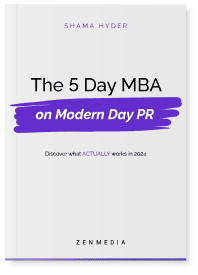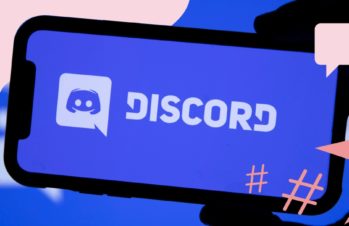Uncovering your target market is a concept all marketers should understand.
But it’s a complicated matter especially as it pertains to Generation Z versus Millennials. The two youngest generations (except for the little babies in Generation Alpha) make up a big piece of the consumer pie and marketers need to know how to attract them.
No customer is the same regardless of generational demographic, but there are commonalities within generations and they’re important to comprehend. The truth of the matter is consumer behavior skews along generational lines.
Just think of the Baby Boomers. This huge generation stretches from 1946 to 1964 and is the product of a boom in post-World War II births. They grew up with television, space exploration, the Civil Rights Movement, and now have the proud title of the longest living generation.
What does that mean for marketers?
Well, this huge cohort is now in or entering retirement age.
They prefer to shop in-store rather than online and value trusted reviews.
They own smartphones and love Facebook.
They have the most disposable income, holding 70 percent of the pie according to BuxtonCo. And, naturally, since they’ve been around so long, they’re a known quantity for marketers.
Gen Z and Millennials, less so.
So how is a marketer to know which of these young markets to target?
Step 1: Define the two.
Who are Millennials?
The first thing every good marketer should understand is who exactly Millennials are.
Millennials are people who were born between 1981–1996. They arrived after Generation X. This means the oldest Millennials will turn 40 in 2021.
This may come as a surprise to some Baby Boomers, as for years, this generation has been stigmatized by their parent’s generation for being entitled, hating hard work, being too casual, and needing constant positive feedback.
Just consider the avocado toast incident. In 2017, Australian millionaire Tim Gurner blamed Millennials’ lack of home buying on their predilection for buying expensive avocado toast, writes the Washington Post.
But is some of what older generations believe about Millennials true?
What is fact and what is fiction about this generation?
What World Events Have Millennials Lived Through?
If you want to get to know a generation, consider what they’ve lived through. Some significant changes and events that have shaped Millennials include, according to Pew Research:
- The 9/11 terrorist attacks. Millennials were between the ages of 5 and 20 making this event historically significant, while most members of Gen Z have little or no memory of the event.
- Millennials were between 12 and 27 when the first Black president, Barack Obama, was elected
- Millennials are the most racially and ethnically diverse adult generation in the nation’s history
What’s also significant is that a large portion of this generation entered the workforce in the midst of the Great Recession, delaying their adulthood, as some experts have said. At the same time, they’re the first generation to truly grow up with the internet. That makes them incredibly tech-savvy and skeptical.
Throw in massive debt from student loans and you can imagine that Millennial consumer behaviors might be wildly different from their Gen X and Boomer counterparts.
So how does this generation approach spending money?
How Do Millennials Spend?
According to a Forbes study in 2018, Millennials have very specific consumer behaviors which include:
- They value experiences
- They like to share with friends (think social media sharing on Instagram, Twitter, and TikTok)
- They like to experiment and have less brand loyalty than Gen Z
- They trust peer endorsements (which could be why influencer culture is booming)
- They like personalization
So what are marketer takeaways from this information?
As a tech-savvy group, a marketer must assume that a Millennial will seek out a brand across all digital channels. Limiting a brand to only one medium, like YouTube, will only reach a portion of this audience.
But within that social media stream, how a marketer promotes a brand needs to be rooted in authenticity. Millennial skepticism means that they want to hear from their peers on a product’s qualities and trustworthiness. Not from a generic spokesperson. Also, this generation values referrals and reviews. Personal recommendations will have more value than simple slogans and catchy taglines.
And this group demands to be seen as individuals, not a monolith. This might be the trickiest part for marketers. Tailoring messaging based on a Millennial consumer’s data history is key and requires an investment in virtual tools to track and deliver personalized promos and information, rather than blanket messages.
Isn’t Gen Z just a newer version of Millennial?
Now, you might be thinking, surely Generation Z, those people born between 1996 and 2010, are just younger versions of Millennials, right?
Wrong.
Generation Z is its own unique group with its own unique history and consumer behaviors. Also called the centennials, Generation Z was, according to Pew Research, primed to enjoy a much better start on adulthood than what Millennials experienced … until the pandemic hit.
Now the latest generation to enter the workforce is facing an uncertain future. How they will deal with this blow is yet to be seen, so let’s first take a look at their demographic makeup.
Who is Gen Z?
Generation Z is in many ways, like Millennials. They’re incredibly racially and ethnically diverse. They’re also digital natives. And, like Millennials, they’re very progressive—Pew reports that three-quarters (77%) disapproved of President Donald Trump, something marketers must keep in mind.
Another big factor to consider: Gen Z is, remarkably, the best-educated generation ever and are more likely to have college-educated parents.
What events have shaped Gen Z’s lives?
The war on terror has been a constant presence in the lives of Gen Z. In addition, they’ve been led by the first Black President. They’ve seen the tragedy of school shootings (many, many times over) and have lived through historic racial protests. All of these events have shaped their worldview.
And technology has been omnipresent in their lives. Consider that Facebook launched in 2004. The iPhone arrived in 2007. They learned to text as they learned to write.
So, how should you market to Gen Z?
Taking into consideration all of the above, marketers need to meet Gen Z where they are—and that is online.
According to Vogue, young people aged 16 to 24 spent an average of seven hours per day online in 2019.
But that time was not necessarily on the channels of Boomers (Facebook) or even their Millennial big brothers or sisters (Twitter). These early adopters are likely to be found on the latest hot new thing which, if you’re paying attention, TikTok barely qualifies as anymore.
Think Twitch, an American video live streaming service. Or YouTube. And the old reliable Instagram.
Meeting them in these spaces and providing experiential marketing rather than product marketing is key to winning Gen Z over.
Take, for instance, Nike’s Fortnite collaboration. The virtual fashion campaign launched in May 2019 when Nike sold branded “skins” “costing $13-18 and available to the 250 million active users via a virtual drop” according to Vogue.
Gen Z is transforming the economy in ways even the most savvy marketers can’t forecast. So it’s important to treat them differently than their older Millennial counterparts. This is a whole new age with a whole new outlook—and that demands an entirely new and different marketing approach.
That said, if you want to speak to some experts on the topic, reach out to Zen Media. We’re ready to help you uncover your target audience.







